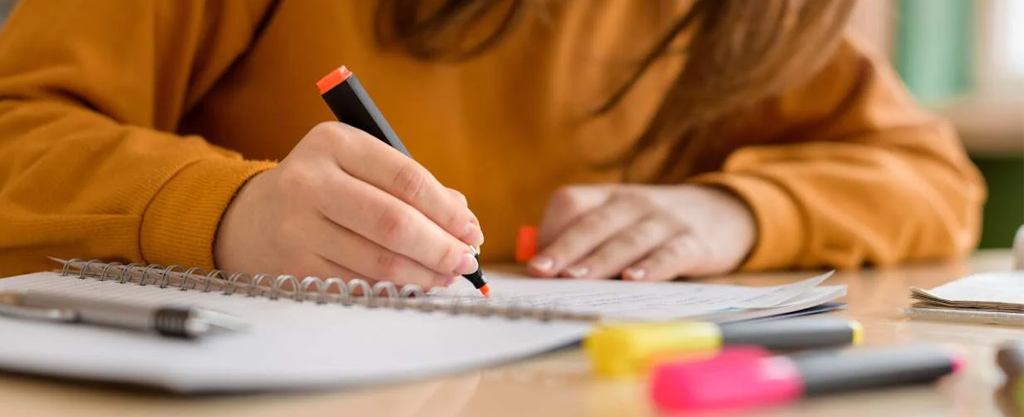Ultimate Uni Student Survival Guide - 5 (Actually Useful) Actionable Steps
Let's be honest. You are (or will be) juggling lectures, late-night study sessions, pub time with friends, and the ever-present question of "what am I even doing with my life?". We get it. It’s hard!
But strap in, stick with us, and we guarantee this post will make it all a little bit easier.
This isn't your grandma's academic survival guide (sorry, Gran!). We're not here to preach about flawless organisation. We know student life is vibrant, messy, and sometimes feels like trying to herd caffeinated squirrels.
That's why we're building something different. Think of this as your genuine student survival guide – a place where we ditch the generic advice and dive into real, actionable strategies without losing your mind (or your social life entirely).
1. Tiny Tasks, Big Wins (Even When You Feel Like a Potato)
Feeling like tackling your to-do list? No. We get it.
That's where Tiny Tasks come in. These are simple, low-energy tasks that still nudge you forward and give you a much-needed sense of "I did something!"
Examples of Tiny Tasks That Actually Matter:
-
Assignment Admin: Tidy up your digital study files. Locate one essential reading for your next assignment. Write a single sentence outlining your essay's main point.
-
Communication: Need to ask your tutor something? Give it a quick draft now and send in the morning. Send a helpful resource to to yourself. Check your emails.
-
Preparation: Pack your bag for tomorrow's lectures. Ensure your laptop and phone are charged. Lay out the materials you need for your next study session.

Forget forcing momentum. Each tiny task you complete releases a little hit of feel-good dopamine. This small win can be enough to create a spark of motivation, making the next tasks feel less impossible.
So, next time you're glued to the couch, don't aim for the essay. Just aim to tidy up those desktop files or fire off an email... you might be surprised where those tiny steps lead.
2. Time Hacking for Humans (Not Robots)
We've already talked about the power of tiny tasks to get you moving. Now, let's zoom out and look at the bigger picture - Time Hacking for Humans: finding flexible strategies that work with the unpredictable flow of student life.
Time hacking is about using even small pockets of time to make consistent progress. Let's take a look at some:
-
Leveraging Transition Times: Next time you’re waiting for your next lecture or for public transport, consider these "transition times" as opportunities for quick, focused activities.
-
Reviewing key concepts: Keep flashcards or brief notes handy for a quick mental refresh.
-
Listening to Relevant Audio: Use your commute to listen to a relevant podcast, a recorded lecture, or an audiobook related to your studies. It’s basically a totally freebie!
-
Mentally outlining a section of your essay: Use the downtime to structure your thoughts and plan your next writing burst.
-
Energy Awareness: Schedule demanding tasks (like essay writing or complex problem-solving) for your peak times and use lower-energy periods for review, organization, or those valuable tiny tasks.
-
Use the "Content First, Polish Later" Principle: Utilise the power of getting a rough draft down, even if it's messy. This allows you to work with tangible content rather than a blank page, saving significant time and mental energy in the long run.

Consider your typical week. Where are those underutilized pockets of time? What types of tasks could you batch together? When do you feel most focused? Start experimenting with these time-hacking principles and find what fits your rhythm.
3. Content First, Polish Later: Stop Staring, Start Spilling – (Then) Let It Shine!
Let's talk about the monster under the academic bed: the blank page. It stares back, judging your every hesitant keystroke. You want to write something brilliant, perfectly structured, grammatically flawless... right from the start. Sound familiar?
This quest for instant perfection is often the biggest roadblock to getting your assignments done, turning writing into a slow, agonizing crawl.
But what if we told you there's a better way? Enter the liberating world of 'Content First, Polish Later'.
The Core Idea: Brains Before Beauty
Your primary goal in the initial stages should be to get your thoughts, arguments, and evidence onto the page – in whatever form they come out. Don't worry about perfect grammar, elegant phrasing, or seamless transitions just yet. Focus on capturing the essence of what you want to say.
Why This Works Wonders for Students:
-
Banishes the Blank Page Blues: It's far less intimidating to face a page with something on it, even if it's messy, than a vast expanse of nothingness.
-
Unleashes the Flow of Ideas: By removing the pressure of perfection, you allow your thoughts to flow more freely and organically. You might even surprise yourself with the connections you make.
-
Builds Momentum (the Real Kind): Seeing words on the screen, even if they're rough, creates a tangible sense of progress. This momentum is far more motivating than staring at a blinking cursor.
-
Makes Editing Manageable: Trying to edit and write at the same time is like trying to drive and build the car simultaneously. Separating the tasks makes each one more focused and efficient.
Author's Note: The Power of the Imperfect First Draft
"That 10,000-word essay? It almost broke me when I tried to be perfect from the outset. Every sentence felt like a monumental effort. It wasn't until I gave myself permission to write a truly terrible first draft – full of terrible grammar - that the essay actually started to take shape.
Those two days of 'content dumping' weren't pretty, but they were incredibly liberating. I had the raw material, the core arguments were there, even if they were full of typos. The following week, the editing process wasn't a joyride, but it was a process. I had something concrete to work with, something to refine. That shift in focus – content first, then polish – was the key to turning a daunting task into a first-class result."
4. The Psychology of the Pen: How Your Study Tools Can Shape Your Mindset
Think back to the start of a new academic year. That fresh academic diary planner, the satisfying click of a brand-new pen. This isn't just sentimentality – there's a fascinating psychology behind how our study tools can actually influence our focus and mindset.
The Sensory Connection: Consider the act of writing with a smooth-flowing pen on quality paper. The tactile feedback, the visual clarity of the ink – these sensory experiences can make the act of studying more engaging and even enjoyable. It's a small ritual that signals to your brain: "Okay, it's time to focus." Compare this to wrestling with a scratchy pen on thin paper; it can feel like a chore before you've even started.
The Power of Physicality: In our increasingly digital world, the act of physically writing things down can be a powerful anchor for concentration. Studies have shown that handwriting engages different parts of the brain compared to typing, potentially leading to better retention and deeper processing of information. Crossing off tasks on a physical to-do list provides a tangible sense of accomplishment that a digital click can sometimes lack.
Colour-Coding Your Cognition: Don't underestimate the impact of color! Using different colored pens or highlighters isn't just about making your notes look pretty. It can be a powerful organizational tool, helping you categorize information, identify key themes, and improve memory recall. Think about color-coding different modules, types of evidence, or levels of importance in your notes.
Creating Your Study Sanctuary: The stationery you choose can contribute to your overall study environment, whether it's your desk in your student accommodation or your favorite spot in the library. Surrounding yourself with tools you find aesthetically pleasing and functional can create a more inviting and focused atmosphere.

A well-organised desk with your favorite pens, notebooks, and maybe even a comforting visual can mentally prepare you to dive into your work. Don't forget to add an academic diary to the picture too!
5. Pocket-Sized Sanity: Self-Care That Actually Fits Your Student Life (and Budget)
Let's be real. If you're the type of student who's got a solid yoga routine and meditates daily, you're probably already winning the self-care game. But when you're juggling lectures, assignments, and a part-time job, self-care can feel like an impossible luxury.
So, for the rest of us – the ones who occasionally survive on instant noodles and whose idea of exercise is a brisk walk to the library – here are some pocket-sized sanity savers.
-
The Uplifting Bite: The simple act of eating something healthy can be surprisingly uplifting. It's not just about the physical nourishment (though that helps!). It's the simple act of putting something good into your body acutally feels good. (Plus, healthy snacks can often be cheaper than processed junk food.) No brainer.
-
The Sonic Boost: Put on one song that you genuinely love. Sing along (even if badly!), tap your foot, just let yourself enjoy the sound. Music can impact on our mood and be a quick way to shift your energy.
-
The Social Snippet: Send a quick text to a friend or family member. A brief connection with someone you care about can combat feelings of isolation and provide a little emotional lift. It doesn't have to be a deep conversation – a simple "thinking of you" can go a long way.

These aren't grand gestures, but they are small, consistent acts of self-care that can accumulate throughout your day. They're about finding those little pockets of time to nurture yourself, even when you feel like you have no time at all.
And the best part? Most of them are completely free or very low cost.
Your Academic Year, Your Way: Key Takeaways for Student Success
Navigating the academic year is a marathon, not a sprint, and it's definitely not about being a flawless robot. Remember these key strategies to thrive, your way:
-
Start Small, Win Big: When motivation dips, conquer the couch with tiny, achievable tasks. Small wins build momentum and a sense of progress.
-
Hack Your Time, Human-Style: Forget rigid schedules. Embrace flexible strategies that work with your energy levels and the flow of student life. Even short transition times can be valuable.
-
Content First, Polish Later: When facing a writing task, prioritize getting your ideas down. You can always refine and perfect later.
-
Mindful Tools, Focused Mind: The stationery you choose can influence your mindset. Opt for tools that make studying a more engaging and intentional experience.
-
Pocket-Sized Sanity: Self-care doesn't need to be time-consuming or expensive. Small, consistent acts throughout your day can significantly boost your mood and focus.
This year is yours to shape. Embrace these strategies, adapt them to your own unique needs and rhythms, and remember that progress, not perfection, is the ultimate goal. You've got this!

